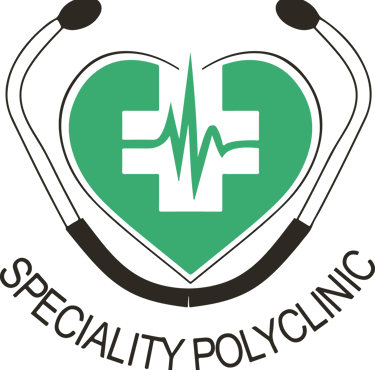Top 5 Preventive Health Screenings Everyone Should Consider
Discover essential preventive health screenings like blood pressure, diabetes, cholesterol, cancer, and bone density tests for early detection and better health outcomes.
10/9/20252 min read


My post contentPreventive health screenings are an essential part of maintaining long-term well-being. They allow for early detection of potential health issues before symptoms appear, increasing the chances of effective treatment and better outcomes. Regular check-ups and tests are not just for people who feel unwell—they are a proactive step toward a healthier life. Speciality Polyclinic Koyilandy emphasizes preventive healthcare as a cornerstone of overall wellness.
Top 5 Preventive Health Screenings
1. Blood Pressure Screening
High blood pressure, or hypertension, is often called the "silent killer" because it usually has no noticeable symptoms. Left untreated, it can lead to heart disease, stroke, kidney problems, and other complications. Routine blood pressure checks, especially for adults over 18 or those with a family history of hypertension, are crucial. Early detection allows for timely lifestyle changes or medication to manage blood pressure effectively.
2. Blood Sugar and Diabetes Screening
Diabetes affects millions worldwide and can cause severe complications if left unmanaged, including heart disease, kidney damage, nerve problems, and vision loss. Screening for blood sugar levels, such as fasting blood glucose or HbA1c tests, helps identify pre-diabetes or diabetes early. Individuals with risk factors—like obesity, family history, or a sedentary lifestyle—should prioritize regular screenings. Managing blood sugar through diet, exercise, and medication can prevent or delay complications.
3. Cholesterol and Lipid Profile Tests
High cholesterol increases the risk of heart attacks and strokes. A lipid profile measures levels of LDL (bad cholesterol), HDL (good cholesterol), and triglycerides.
Early detection allows patients to make dietary adjustments, incorporate exercise, or take medication as prescribed by their doctor. Regular cholesterol screening is especially important for adults over 20, those with a family history of heart disease, or people with diabetes or obesity.
4. Cancer Screenings
Early detection is key to effectively treating cancer. Common screenings include:
Breast Cancer: Mammograms are recommended for women over 40 or earlier if there is a family history.
Cervical Cancer: Pap smears help detect precancerous changes and are recommended from age 21 onwards.
Colorectal Cancer: Colonoscopies for adults over 50 or sooner for those with risk factors help detect polyps or early cancer.
These screenings significantly increase the chances of successful treatment and survival. Discuss with your doctor which screenings are appropriate for your age and risk factors.
5. Bone Health Screening
Osteoporosis is a condition characterized by weakened bones, making them more prone to fractures. Bone density tests are particularly important for postmenopausal women and older adults. Early detection helps in taking preventive measures such as dietary calcium and vitamin D, weight-bearing exercises, and medications to strengthen bones. Maintaining bone health reduces the risk of fractures and ensures mobility and independence in later years.
Benefits of Preventive Health Screenings
Early Detection: Identifying health issues before they become severe allows for easier and more effective treatment.
Cost-effective Care: Preventive screenings can reduce long-term healthcare costs by avoiding complications.
Healthy Lifestyle Guidance: Screening results help doctors provide personalized advice on diet, exercise, and lifestyle.
Peace of Mind: Regular check-ups reassure you that you are actively monitoring your health.
Tips for a Successful Health Screening Routine
Schedule Regular Appointments: Make screenings part of your annual health routine.
Maintain Records: Keep a file of past test results for comparison and continuity of care.
Follow Doctor’s Advice: Adhere to recommended tests, medications, and lifestyle changes.
Be Honest: Share family history, lifestyle habits, and symptoms accurately with your healthcare provider.
Conclusion
Preventive health screenings are a simple yet powerful way to take control of your health. They help detect diseases early, prevent complications, and empower you to make informed decisions about your lifestyle.
Speciality Polyclinic
Providing exceptional medical services 24/7 in Koyilandy.
Connect With us
© 2025. SPECIALITY POLYCLINIC All rights reserved.




